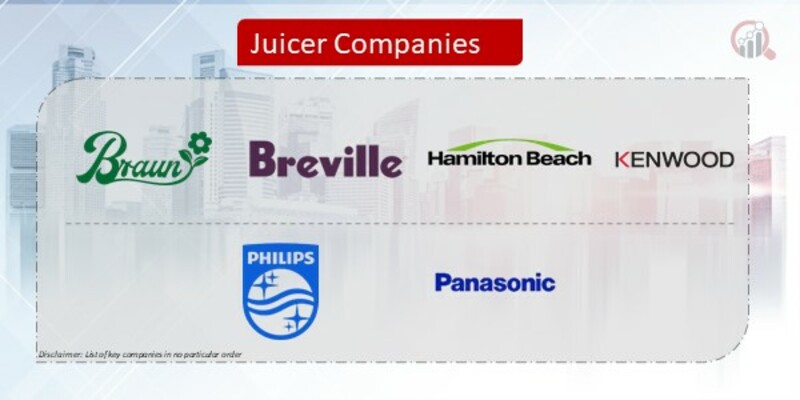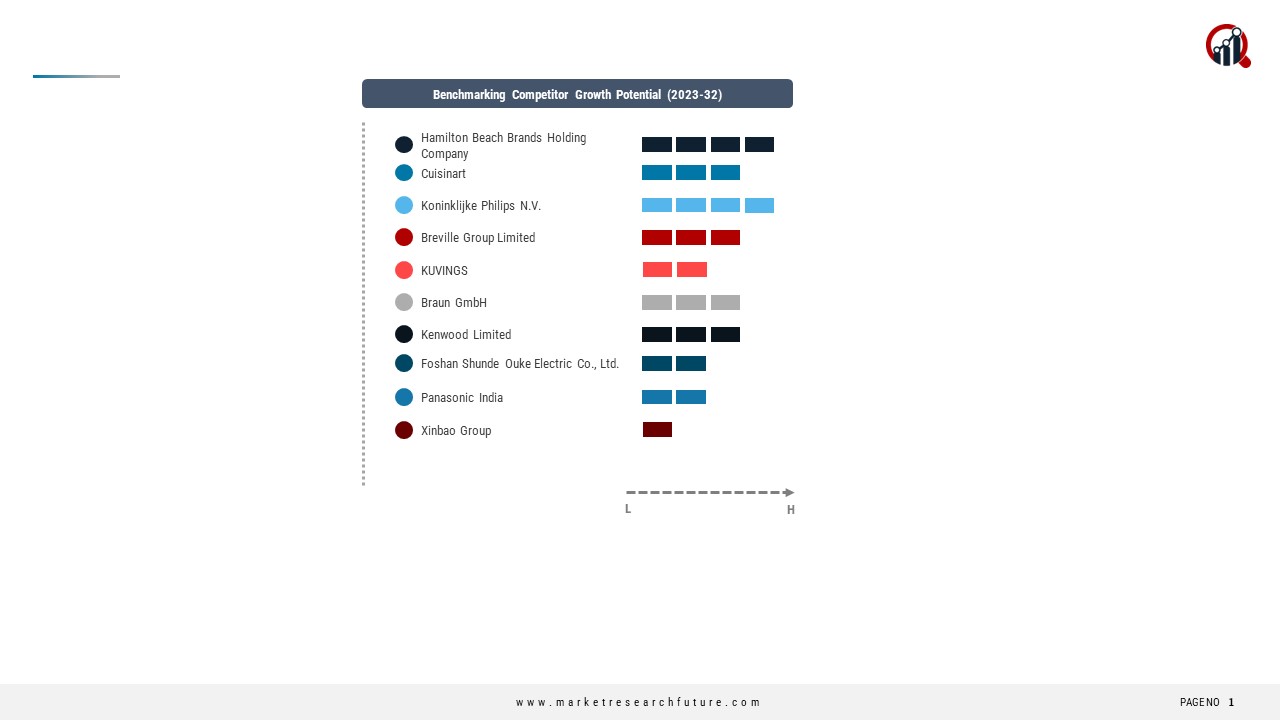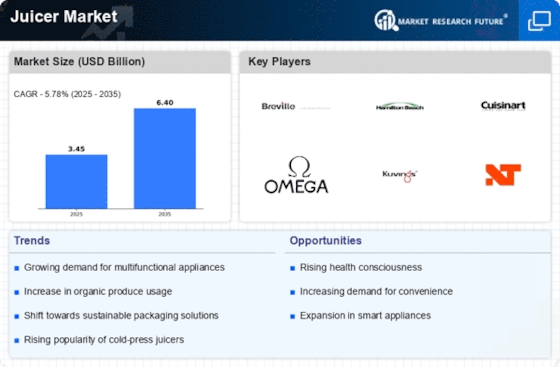Top Industry Leaders in the Juicer Market

The competitive landscape of the juicer market is marked by a diverse array of players striving to cater to the growing demand for health-conscious consumers seeking fresh and nutritious beverage options. Key players in this market include established brands with a rich history in kitchen appliances, as well as emerging companies introducing innovative features to capture consumer attention.
In terms of strategies, key players in the juicer market often adopt a multi-pronged approach to stay competitive. Continuous product innovation is a common strategy, with companies introducing new features such as enhanced extraction efficiency, quieter operation, and user-friendly designs. Additionally, marketing efforts emphasize the health benefits of juicing, targeting consumers who prioritize wellness and nutrition. Collaborations with wellness influencers and chefs are also employed to enhance brand credibility and reach a broader audience.
Market share analysis in the juicer industry is influenced by several factors. Product performance, durability, ease of use, and pricing are critical considerations for consumers. Companies that can strike a balance between these factors tend to capture a larger market share. Moreover, the ability to adapt to changing consumer preferences, such as the demand for cold-pressed juices or the integration of smart technology in juicers, contributes to a company's competitive edge. Customer reviews and ratings play a pivotal role, influencing potential buyers and impacting the reputation of juicer brands in the market.
As the health and wellness trend continues to gain momentum, new and emerging companies are entering the juicer market with innovative offerings. Start-ups like Juicero, known for its internet-connected juicer, and NutriBullet, with its compact and powerful blenders, have disrupted the market by introducing novel approaches to juicing. These companies often leverage technology to enhance the juicing experience, appealing to a tech-savvy consumer base.
Industry news reflects the dynamic nature of the juicer market, with frequent product launches, partnerships, and acquisitions. Companies are keen on expanding their product portfolios through strategic acquisitions to strengthen their market position. Moreover, collaborations with nutritionists and health experts are common, aligning brands with wellness trends and providing consumers with reliable information on the benefits of juicing.
Current investment trends in the juicer market indicate a focus on research and development to create cutting-edge products. Companies are investing in technologies that improve extraction efficiency, reduce waste, and enhance the overall user experience. Furthermore, sustainability is a growing concern, leading to investments in eco-friendly packaging and materials. Companies that demonstrate a commitment to environmental responsibility are likely to gain favor among environmentally conscious consumers.
The overall competitive scenario in the juicer market is characterized by intense rivalry among established players and the continuous entry of new competitors. The market's growth is driven by an increasing awareness of healthy lifestyles, prompting consumers to incorporate fresh juices into their daily routines. This surge in demand creates opportunities for both traditional and innovative players to thrive in a competitive landscape that values quality, innovation, and health-conscious offerings. As consumer preferences evolve, the juicer market is expected to witness further advancements, ensuring a dynamic and competitive environment for industry stakeholders.
Key Players
- Hamilton Beach Brands Holding Company
- Cuisinart
- Koninklijke Philips N.V.
- Breville Group Limited
- KUVINGS
- Braun GmbH
- Kenwood Limited
- Foshan Shunde Ouke Electric Co. Ltd.
- Panasonic India
- Xinbao Group
- Hurom India Private Limited












